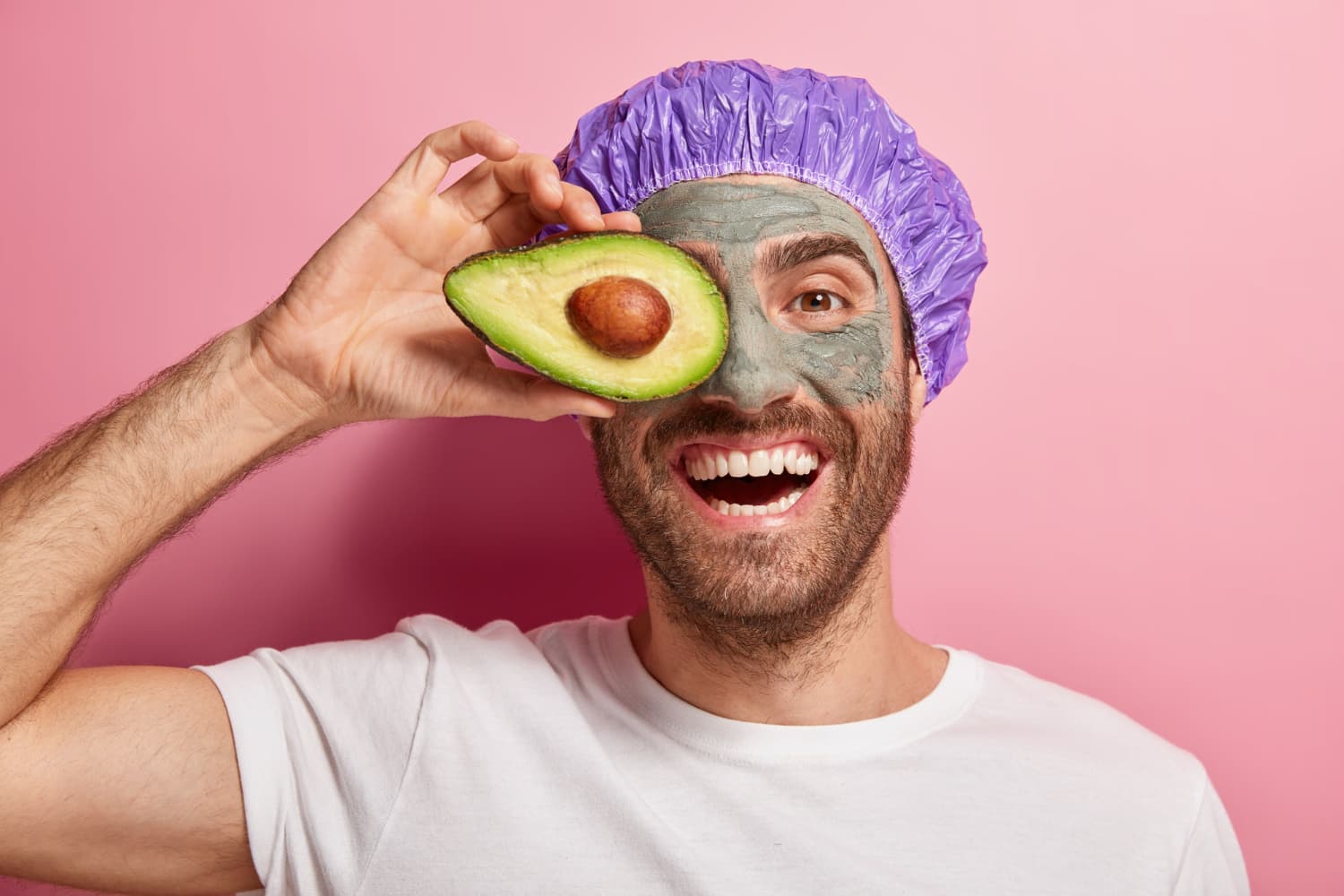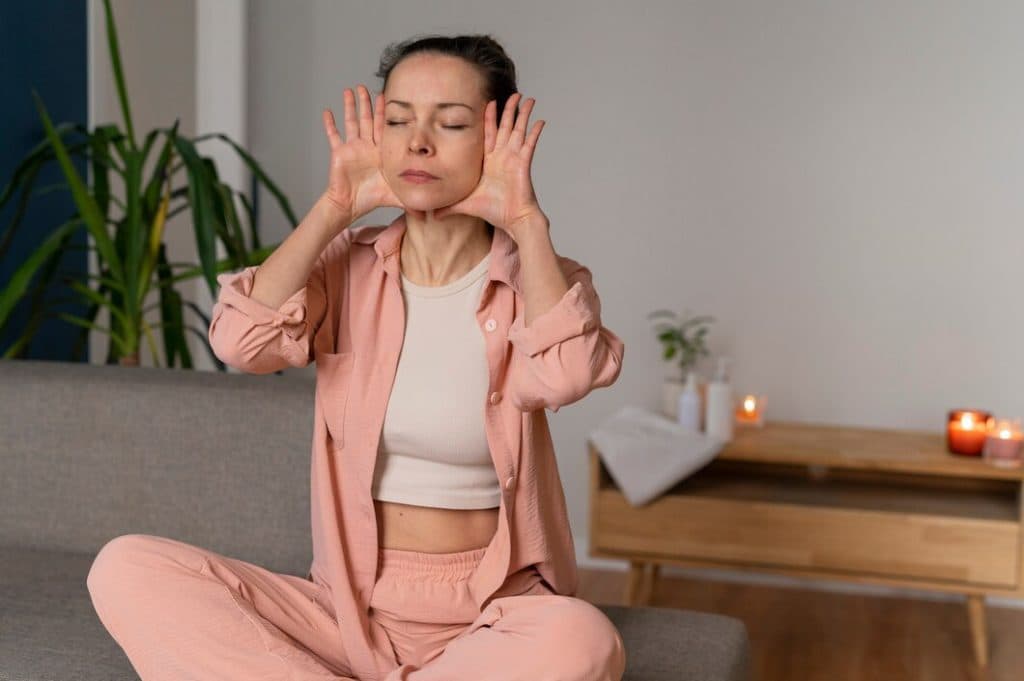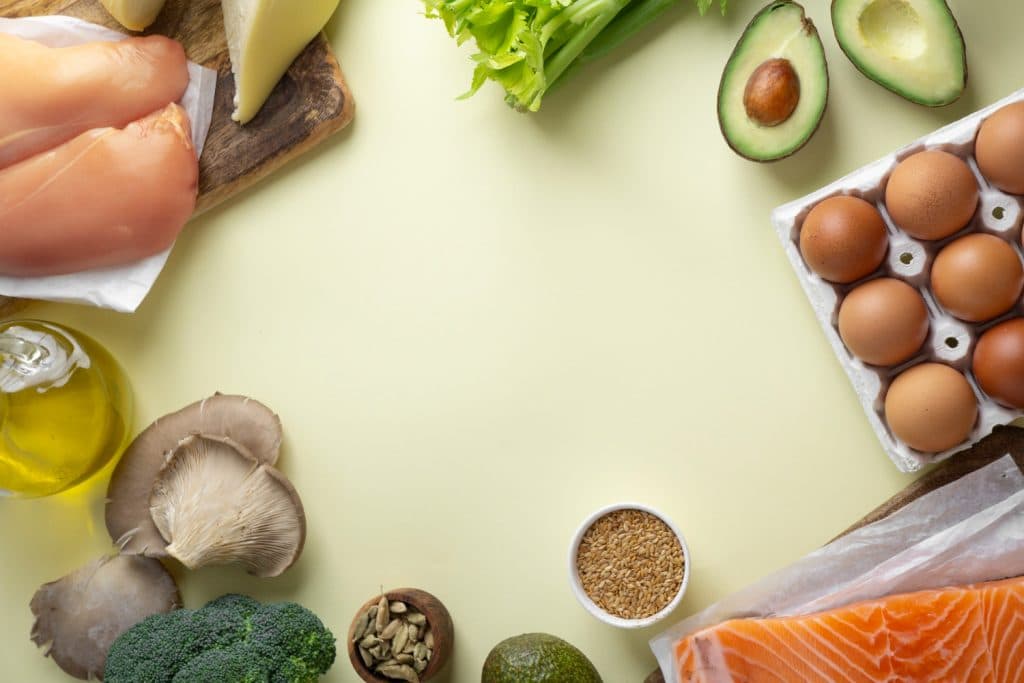Back to blog
Skincare Routine Formula: Top Tips, Simple Steps, and Natural Remedies

Why Skincare Routine Matters
Nighttime Skincare
Skincare Specific to Your Skin Type
Face Yoga
Aloe Vera
Rose Water
Vitamin C
Retinol
Collagen
Skin-Loving Foods
Healthy Meal Delivery
Nighttime Skincare
Skincare Specific to Your Skin Type
Face Yoga
Aloe Vera
Rose Water
Vitamin C
Retinol
Collagen
Skin-Loving Foods
Healthy Meal Delivery
Skincare isn’t just a routine anymore; it’s a lifestyle that combines proper nutrition, hydration, and effective products. Whether you’re curious about how to get glowing skin or looking for the best skincare routine for a flawless complexion, you’ve come to the right place! From natural remedies to everyday care, this guide covers all you need to know about skincare for men and women. You’ll also find simple skincare steps for morning and night, facial exercises, the best food for glowing skin and natural ingredients to include in your diet for maintaining a healthy, youthful, radiant look. In this article, you’ll discover top tips and tricks, with all your questions answered based on trusted sources.
Skincare Routine Matters: Small Steps, Big Differences
The golden first step in a skincare routine is cleansing. At the end of a long day full of pollution, dirt, and oil, your skin needs to breathe. Proper cleansing removes buildup, prevents breakouts, and leaves your face refreshed. The following steps are also simple. For effective results, stick to a consistent routine of your choice and include natural ingredients like aloe vera gel or light face oil for added nourishment. The basics of a healthy skincare routine are as follows:
- Cleanse your skin morning and night.
- Apply toner to balance your skin tone.
- Use a moisturizer that suits your skin type.
- Never skip sunscreen.
Remember: Skincare has no gender and is not exclusive to women; it’s self-care for all.
Nighttime Care: Your Skin’s Natural Repair Time
A good night's sleep, combined with the right routine, gives you the glowing morning you’re looking for. Your skin renews itself while you sleep, which is why nighttime skincare steps are essential for maintaining healthy skin. Here are the steps you need to take:
- Remove make-up completely before going to bed.
- Cleanse with a gentle face wash.
- Apply a nourishing night serum.
- Lock in hydration with a rich night cream.
Skincare Tips Specific to Your Skin Type
For Oily Skin
- Use oil-free cleansers.
- Exfoliate once a week.
- Choose lightweight gel moisturizers.
- Try clay masks for deep cleaning.
For Dry or Sensitive Skin
- Go for cream-based cleansers.
- Avoid products with fragrance or alcohol.
- Hydrate deeply with ceramide or hyaluronic acid creams.
Yoga for the Face: Because Your Skin Needs a Workout Too

Yes, your face needs a workout too. Face yoga goes beyond surface-level skin care. Think of it as a natural workout for your skin, which stimulates blood circulation and promotes relaxation. With just a few minutes a day, you can naturally tone facial muscles, ease tension, rejuvenate, and restore a youthful glow, no needles required. Try these facial exercises and notice the difference in your skin:
- Smooths fine lines and reduces wrinkles
- Boosts circulation for brighter skin
- Relieves stress and tension
- Reduces puffiness and dark circles
- Helps contour the jawline and lift sagging areas
- Improves sleep quality and relaxation
Face Yoga Exercises
- Cheek Puff: Inhale, puff your cheeks, hold for 10 seconds, release.
- Forehead Smooth: Press fingertips across the forehead and slide outward.
- Eye Tap: Lightly tap around the eyes to reduce puffiness.
- Jaw Stretch: Press your jaw gently into your fist for a few seconds.
- Smile Lift: Place fingers at the mouth corners, lift into a smile, hold and release.
Aloe Vera Benefits for Skin Health: Nature’s Magic
The aloe vera plant is one of the most popular medicinal and cosmetic plants in the world. It has been used for centuries to treat not only the skin, but also hair and overall health.
Many use aloe vera gel for face and skin health. These uses include:
- Soothe redness and irritation.
- Treat acne with its antibacterial properties.
- Fight signs of aging.
- Calm skin burns.
- Speed up wound healing.
- Hydrate skin deeply and without greasiness.
- Fade dark spots and promote skin healing.
- Treat skin inflammation.
- It acts as a natural antibacterial.
How to Use Aloe Vera for Skincare?
For best results, use it morning and night to keep your skin moisturised and refreshed. Using aloe vera gel is simple:
- Apply a small amount to clean, dry skin.
- Gently massage until the gel is fully absorbed.
- Leave it on for about 15 minutes, then rinse off.
Rose Water Benefits for Skin Health: Topical & Edible Uses
Rose water is a fragrant liquid with a delicate floral scent used in skincare and aromatherapy. It is made by steam distilling of rose petals in water; the distillation is used to extract rose oil for perfumes, and the rose water is a byproduct of this process. This byproduct has many benefits and uses, including:
- Soothe irritation from eczema.
- Help heal wounds faster.
- Reduce discoloration and puffiness.
- Reduce wrinkles and fine lines.
- Reduce skin damage caused by sun exposure and oxidative stress, as it contains several powerful antioxidants.
- Reduce the risk of infections, especially in cuts and burns, due to its antimicrobial properties.
- Used in aromatherapy for its anti-anxiety effects, and for improving sleep quality.
Tips
- Apply as a facial cleanser or toner, creating a protective base before make-up.
- You can pour it into a spray bottle and use it as an aromatherapy mist on your face.
- Rose is an edible flower, its petals in salads or desserts, its water can be used in teas, or added to flavor foods like yogurt.
- You can create your own rose water at home by simmering rose petals in water.
Cautions
- Rose water is generally safe for everyone. However, it is better to do a patch test before using, especially if you have sensitive skin or allergies.
- For edible use of rose water, make sure it’s food-grade and from a reputable source before consuming.
Vitamin C Benefits for Skin Health: Does it Really Work?

Absolutely! Also known as the “beauty vitamin,” for good reason. Its top Vitamin C benefits for the skin include:
- Unifying skin tone.
- Preventing pigmentation and dark circles.
- Stimulating collagen production, which is responsible for skin elasticity.
- Reducing sagging and signs of aging.
- Treating sunburns.
- Speeding up wound healing.
- Soothing redness and irritation.
- Fighting acne and reducing inflammation.
- Brightening and boosting radiance.
- Protecting skin from harmful factors by strengthening the skin’s natural barrier.
- Hydrating and moisturizing the skin.
Vegetables and Fruits with Vitamin C
The body cannot produce vitamin C or store it. Getting enough of this vitamin from supplements or fruits and vegetables is necessary. Top vitamin C foods include:
- Red bell peppers
- Broccoli
- Parsley
- Oranges
- Guava
- Kiwi
- Lemons
- Papaya
- Strawberries
Read more about the Best Acne Treatment.
Retinol: Most Active Ingredient in Skincare
Retinol is one of the most powerful active skincare ingredients. For best results when using retinol, apply it at night before sleep, start with a low concentration to allow your skin to adapt, and always pair it with a moisturizer and sunscreen the next morning to avoid irritation. Top retinol benefits include:
- Helps reduce wrinkles.
- Even out skin tone.
- Stimulates collagen production.
- Treats acne.
- Refines skin texture.
Precaution: Avoid using retinol for at least one month before trying to conceive and during pregnancy, as it can be harmful to the fetus.
Retinol Food Sources
- Liver (beef or chicken liver)
- Oily fish (salmon, sardines, trout, herring, mackerel)
- Vegetables and fruits (mangos, apricots, peaches, cantaloupe)
- Dairy (milk, cheese, butter)
- Eggs and egg yolk
Collagen for Skin Health
Collagen is an essential protein that helps keep skin firm, elastic, and youthful. One of the main benefits of collagen for the skin comes from taking supplements or using collagen-infused products. Top collagen benefits for skin include:
- Help reduce wrinkles.
- Boost skin hydration.
- Reduce the appearance.
- Speed up wound healing.
Collagen Rich Foods for Skin
Combining vitamin C–rich foods with sources of healthy fats can give your body a natural boost in collagen production. Here are some of the top foods to include in your diet:
- Bone broth
- Fatty chicken
- Beef
- Oily Fish
- Garlic
- Berries
- Citrus fruits
- Cashews
- Dairy and cheese
- Oysters
- Gelatin
Beauty Starts Within: Skin-Loving Foods

Foods Good for Skin Health
Your diet plays a big role in getting the glowing skin you desire. Eating the right foods can improve the results of your skincare routine naturally. Add these to your meals for radiant, youthful skin:
- Avocados: Full of healthy fats, vitamin E, and biotin that keep skin soft and renewed.
- Pomegranate: Loaded with antioxidants that fight signs of aging.
- Green tea: Rich in antioxidants and fights free radicals, which reduce oxidative stress.
- Leafy greens: Like spinach and kale, which are high in vitamin A for skin renewal.
- Nuts: Packed with zinc, vitamin E, and omega-3, which help reduce acne and protect the skin from sun damage, like walnuts and almonds.
- Fatty fish: Rich in omega-3 fatty acids for skin protection, like salmon and tuna.
- Sweet potatoes: Loaded with beta-carotene to protect against sun damage.
- Carrots: Full of beta-carotene to protect against sun damage.
- Eggs: Protein for skin cell renewal.
- Dark chocolate: Its antioxidants help fight pollution and keep skin radiant.
Read about the Benefits of Avocados and more on Dark Chocolate.
Natural Face Oils for Skincare
- Castor oil
- Coconut oil
- Olive oil
- Argan oil
- Carrot oil
- Almond oil
- Tea tree oil
- Turmeric oil
Read more about Coconut Oil Benefits and Olive Oil Benefits.
Staying Hydrated
Hydration must also start from within. While essential, hydrating doesn’t only mean drinking water, it also means eating hydrating foods like pineapples and watermelons, drinking juices, and keeping the skin moist with the use of creams or natural oils. However, the benefits of drinking water remain undeniable, particularly for skin health. It’s recommended that women drink about 2.2 litres of water daily, and men about 3 litres, to maintain optimal skin health. Here’s why:
- Moisturizes the skin: Keeping it smooth and supple.
- Natural glow: Enhances natural radiance.
- Flushes toxins: Clears impurities that can dull the skin.
- Reduces wrinkles: Minimises fine lines and signs of aging.
- Improves elasticity: Keeps skin firm and resilient.
Read more about Tart Cherry Juice Benefits.
Healthy Meal Delivery
Give your skin the nourishment it deserves for a healthy, radiant glow with the Calo App! Because we believe skincare starts from within! Our balanced meals are specially designed to fuel your skin with essentials like collagen, vitamins, and antioxidants. Calo is your go-to choice for beauty care from the kitchen to the mirror.
FAQ
How can I get glowing skin naturally?
Be consistent with your skincare routine at all times, from cleansing and hydration to sun protection and exfoliation. Pursue healthy habits as well, including balanced diets rich in fruits and vegetables, which can provide your body with skin-loving vitamins like vitamin C, exercising, getting enough sleep, and managing stress.
How to get clear skin naturally?
- Moisturize your skin with a moisturizer suitable for your skin type.
- Use hydrating masks for extra moisture.
- Cleanse and wash your face twice a day to remove impurities and excess oil.
- Exfoliate weekly to remove dead skin cells and reveal clear skin layers.
- Protect your skin daily from sun damage with sunscreens.
- Consider using serums, like vitamin C serum, for brightening and protection.
- Consider applying a toner before using products to balance the skin’s pH.
- Get enough sleep, aim for 7-9 hours of sleep to allow your skin to repair itself.
- Avoid stress as it can directly and negatively impact skin health.
- Do facial exercises to fight wrinkles and signs of aging.
- Exercise regularly to allow better blood circulation to the skin.
- Drink enough water. Women should aim to drink at least 9 glasses of water per day, while men should drink at least 13 glasses of water per day.
- Eat plenty of fruits, vegetables, whole grains, and proteins. Following a healthy diet rich in vitamins and antioxidants is essential.
Read more about Healthy Living.
How do I choose the right moisturizer?
- Oily skin: Lightweight gels.
- Dry skin: Thick creams with oils.
- Sensitive skin: Fragrance-free, alcohol-free.
Can I use Aloe vera gel every day?
Absolutely! It’s natural and suitable for all skin types, especially acne-prone or sensitive skin. Actually, aloe vera is also widely used for hair care and overall health.
Does diet affect skin health?
Definitely! A balanced diet rich in vitamins, antioxidants, minerals, and water keeps your skin glowing long-term. In contrast, a diet high in refined sugars, processed foods, and unhealthy fats can trigger inflammation and acne breakouts. To keep your skin healthy from within, eat more healthy fat foods rich in omega-3 that help fight acne, fruits, vegetables, legumes, and nuts, and always stay hydrated.
A skincare routine doesn’t have to be complicated or expensive, but it is the key to lasting radiance. All it takes is understanding your skin’s needs, following consistent skincare tips and steps, applying natural boosters, and adding nutrient-rich foods to your meals. Give your skin the care it deserves and let your beauty shine from within. With the right routine, your skin can stay fresh and glow with life. Learn more about a Healthy Summer Bucket List, and learn what Kombucha Tea is good for, or read about many other health-related topics on our Calo Blog.








